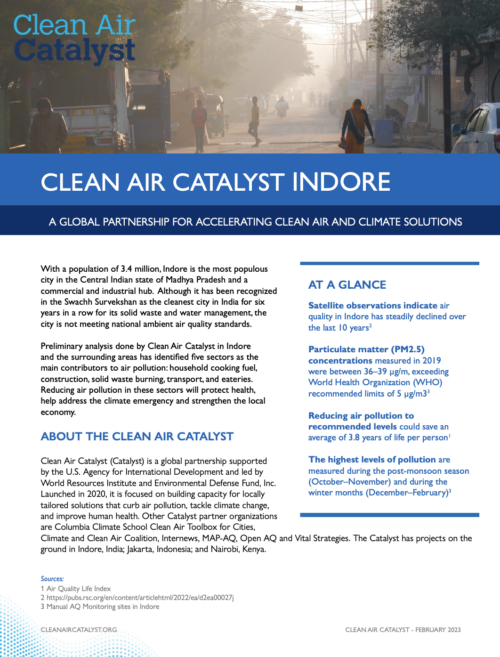Clean Air Catalyst Fact Sheet – Indore, India


With a population of 3.4 million, Indore is the most populous city in the Central Indian state of Madhya Pradesh and a commercial and industrial hub. Although it has been recognized in the Swachh Survekshan as the cleanest city in India for six years in a row for its solid waste and water management, the city is not meeting national ambient air quality standards.
Preliminary analysis done by Clean Air Catalyst in Indore and the surrounding areas has identified five sectors as the main contributors to air pollution: household cooking fuel, construction, solid waste burning, transport, and eateries. Reducing air pollution in these sectors will protect health, help address the climate emergency and strengthen the local economy.
Clean Air Catalyst (Catalyst) is a global partnership supported by the U.S. Agency for International Development and led by World Resources Institute and Environmental Defense Fund, Inc. Launched in 2020, it is focused on building capacity for locally tailored solutions that curb air pollution, tackle climate change, and improve human health. Other Catalyst partner organizations are Columbia Climate School Clean Air Toolbox for Cities, Climate and Clean Air Coalition, Internews, MAP-AQ, Open AQ and Vital Strategies. The Catalyst has projects on the ground in Indore, India; Jakarta, Indonesia; and Nairobi, Kenya.
Science and solutions
Engagement

